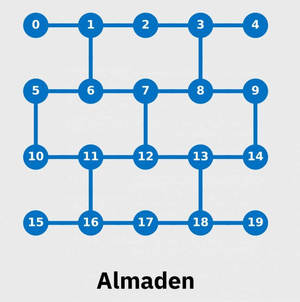
Understanding chemical reactions is key to building efficient sustainable energy solutions and converting solar energy into electricity. For this, researchers at the University of Notre Dame are modeling chemical reaction simulations by using a cloud-based IBM Quantum computer.
A study led by Mariya Vyushkova, quantum computing research specialist at Notre Dame’s Center for Research Computing (CRC), in collaboration with Barbara Jones, researcher in quantum computing applications for IBM Research, simulated how a chemical reaction outcome is controlled and how that impacts the conversion of energy. Students from DePaul University, Georgetown University, Illinois Institute of Technology, and Occidental College in Los Angeles also collaborated on the research.
This study is just one aspect of Notre Dame’s collaboration with IBM. In 2019, the University joined the IBM Q Network to support the advancement of quantum computing.
To read more about this study, please visit https://www.ibm.com/blogs/research/2020/02/quantum-spin-chemistry/.
The CRC at the University of Notre Dame facilitates multidisciplinary discoveries through advanced computation, software engineering, data analysis, and other digital research tools. The center enhances the University’s innovative applications of cyberinfrastructure, provides support for interdisciplinary research and education, and conducts computational research. Comprised of four groups – the Center for Social Science Research, computational science, High Performance Computing, and software development – the CRC supports discoveries in science, engineering, the arts, the humanities, and the social sciences. To learn more about the center, please visit crc.nd.edu.
Contact:
Brandi R. Wampler / Research Communications Specialist
Notre Dame Research / University of Notre Dame
brandiwampler@nd.edu / 574.631.8183
research.nd.edu / @UNDResearch
About Notre Dame Research:
The University of Notre Dame is a private research and teaching university inspired by its Catholic mission. Located in South Bend, Indiana, its researchers are advancing human understanding through research, scholarship, education, and creative endeavor in order to be a repository for knowledge and a powerful means for doing good in the world. For more information, please see research.nd.edu or @UNDResearch.